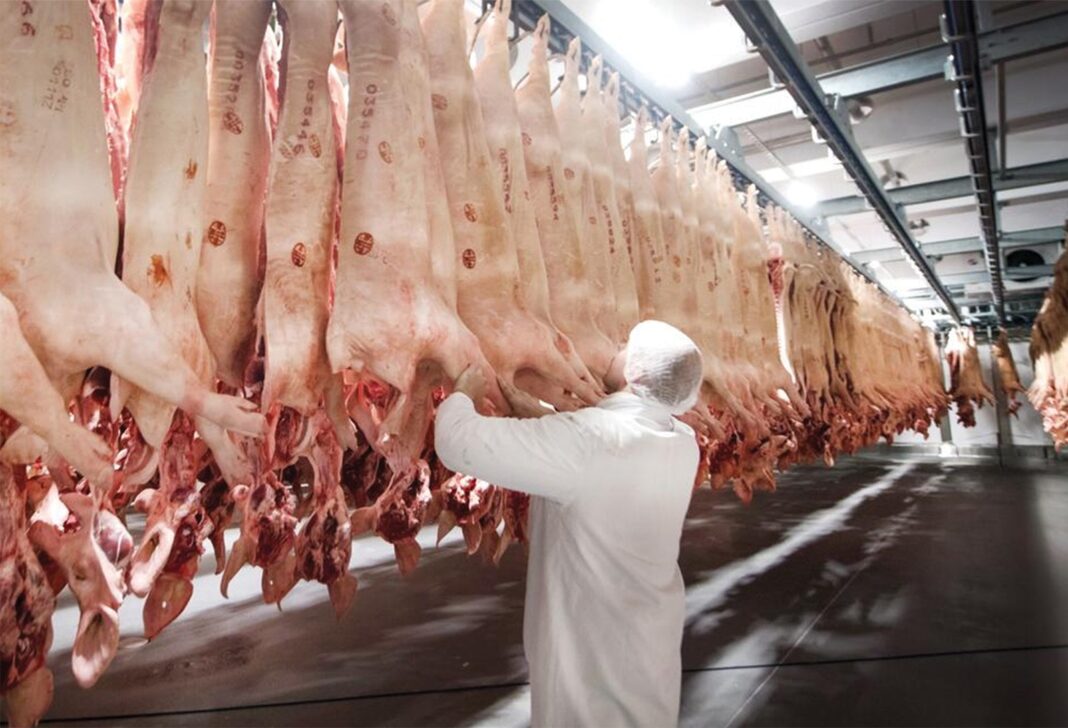By Neo Kolane
A massive 10 000 workers have lost their jobs in the ailing clothing and textile industry since the beginning of this year, with more expected to be sent home packing in the near future.
The sector, which is the second largest employer after the government, continues to perform poorly largely owing to declining orders from the United States, the major importer of Lesotho’s apparel.
Devastating effects of the Covid-19 are also still being felt as desperate local firms close shop or lay off employees for months on end hoping that the industry will gradually pick up. Buts this is unlikely, experts say.
Local companies this week painted a gloomy picture of the industry and expressed fears the job losses are likely to continue as there is no end in sight to the current challenges.
Russia’s invasion of Ukraine in February 2022 has also worsened the textile industry’s quagmire in the past two years as orders dwindle further due to lack of demand for Lesotho’s apparel.
The regional manager of Lesotho Precious Garments (PTY) Ltd, Lengana Tṧepe, told theReporter in an interview on Tuesday that the company was limping.
Tṧepe said the ongoing economic meltdown affecting both African and Asian countries, which was precipitated by the Russia and Ukraine war was impacting negatively on the Maseru based company.
He said Americans have reduced their spending on clothing and were instead now focusing on basic needs such as food, whose prices continue skyrocketing due to the war. Russia and Ukraine are two of the world’s biggest producers of wheat which they export to many countries including Lesotho.
“American consumers who buy most of Lesotho’s apparel are now having to make a choice between buying clothes and food; they prioritise food. This has a negative impact on our textile industry,” Tṧepe explained.
“These and other factors that are beyond the control of the company are severely affecting our business,” he noted.
He further expressed fears and there were clear signs that retrenchments in the sector would continue in the country as the dire situation persists for most companies.
“Experts have advised that the crisis is likely to continue for the better part of this year and this is worrisome.”
Tṧepe said Precious Garments (PTY) Ltd sources materials for its products from Taiwan before exporting them to the United States. But with transport costs ever escalating, the company was increasingly finding it more difficult to survive.
This has resulted in thousands of people losing their jobs, he said.
“Instead of us making profit, we have made losses,” he added.
Lesotho Precious Garments (PTY) Ltd has retrenched 700 workers between March 20 and April 20, 2023.
According to the Lesotho National Development Corporation’s (LNDC) Industry Status Report dated March 2021, at least 6064 workers in the clothing and textile sector lost their jobs due to the COVID-19 induced economic meltdown.
The report further states from March 2020 to March 2021 factory closures and downsizing immensely contributed towards job lay-offs.
“Two factories namely, Coating Company and Huan Sheng ceased operations, while Presitex and CGM merged. Nien Hsing International combined its five companies into three and is planning to combine the three companies into one,” reads the report.
It also notes that lack of demand on the global market had led to widespread retrenchments in the sector.
“Another contributing factor to the job losses is the decline in purchase orders as a result of the Covid-19 pandemic,” it added.
The report however, indicates that the textile sector still remains a top employer in the country.
“The manufacturing industry constitutes 88, 8 percent of total employment in the industry despite the 12, 9 percent decline.
“Printing and embroidery sectors experienced the most employment decline of 82, 4 percent as a result of a company that shut down, followed by clothing and textile sector at 12, 9 percent.”
Another report titled Impact of Covid-19 on manufacturing Industry in Lesotho: Case study of LNDC- Assisted Companies released in November 2020 highlights that some factories were forced to retrench workers and placing some on temporary layoffs.
“The employment levels for 2020 have been relatively lower compared to the same period in 2019. The lowest employment rate was recorded in April 2020 at 30 741, which is 24 percent lower than the one recorded in the same period in 2019. This decline is due to lockdown and company closures,” the report says.
“Some companies were forced to retrench workers while some factory workers had their hours cut during the lockdown. The highest reported employment level was 43 542 in February 2020, which was higher than that of the same period in 2019.”
The November 2020 report however revealed that the impact of the COVID-19 lockdown on the production of the manufacturing sector was not as bad as they had anticipated.
It also indicated that the impact of COVID-19 lockdown on the manufacturing industry has been minimal and below the levels anticipated. The same report went on to recommend that various relief measures be implemented to reduce the effects of COVID– 19 on local companies.
“The need to support and implement trade and trade-related initiatives cannot be overemphasised as the pursuit for the private-sector-led growth can meaningfully be achieved when interventions targeted at empowering and strengthening the operations of the private sector particularly in trade and investments are prioritised.
“The potential to turn around the state of the economy and relief to government challenges that include high deficit and wage bills can be explored through focusing and committing to implementation of relevant business environment reforms to entice the private sector to participate,” the report added.
Lengana urged the government to assist the clothing and textile industry with subsidies on electricity and water.
He said although this would not be enough, it would go a long way in helping the struggling factories get back on their feet.
“It would not be helpful for the government to give factories cash bail outs. It would be of no use because additional money will not bring any orders that create or help retain jobs,” he added.
Commenting on the huge job losses in a separate interview, the Deputy Secretary of the National Clothing and Textile and Allied Workers Union (NACTWU), Tšepang Makakole, said it was sad that workers were being retrenched yet there was no visible effort made by the government to see to it that the struggling factories are stable.
Makakole said the desperate situation in the clothing and textile industry could only be reversed if new investors come in.
There were many factories in Butha Buthe nearing completion but they did not have water and electricity, he pointed out.
“The question is, how will they work without such vital utilities?” he quizzed.
Makakole also said the government had in January this year promised to reopen factories that were closed in Maseru in two months but this never happened.
“They (government) spokes about it at the beginning of the year but now its four months and we’re still waiting,” he noted.
He added that the government should assist in sources markets for local products beyond South Africa and United States.









